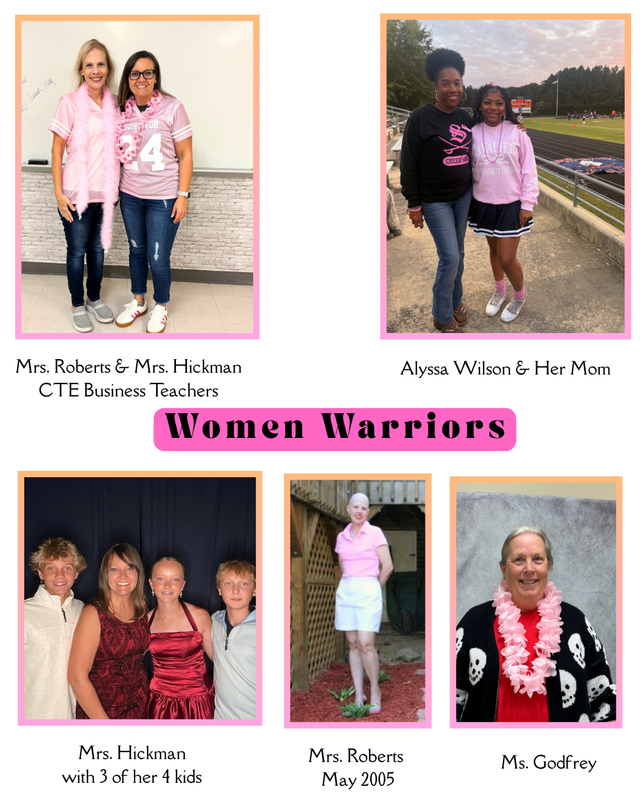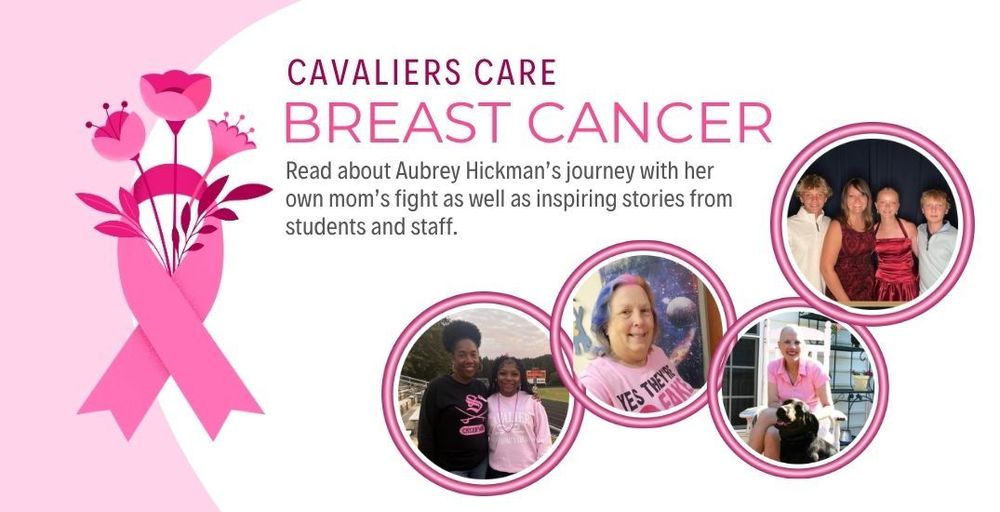CAVALIERS CARE
Every October is recognized as Breast Cancer Awareness Month, a time dedicated to educating people about the signs, risk factors, and impact of breast cancer. It’s also a time to honor those who have survived the disease, as well as those who continue to fight it.
Each year, over 6,000 women in North Carolina are diagnosed with breast cancer, and unfortunately, more than 1,000 lose their lives to the disease. Breast cancer is the second leading cause of cancer-related deaths among women in North Carolina. 1 in 8 women in the United States will develop breast cancer in her lifetime. Most diagnoses occur in women over the age of 40, and the risk increases with age.
There are five stages of breast cancer, which are determined by the size of the tumor and whether the cancer has spread. The higher the stage, the more challenging it is to treat. Common treatments include surgery, chemotherapy, and radiation, and some patients must take medication for several years after treatment ends.
I had the opportunity to speak with Mrs. Shanna Roberts about her experience. Mrs. Shanna Roberts was just 35 and was diagnosed with stage 3, a highly aggressive form. The cancer had spread to 14 of her lymph nodes looking for another home. She had just begun teaching at West Lee when a routine checkup changed her life. She had 7 weeks of radiation and 6 months of chemo in addition to several surgeries. Always positive and cheerful, she’s ecstatic to be a 20-year cancer survivor. “The teachers at West Lee were amazing in helping me to teach and go to doctor appointments. I’m amazed at the strength and resilience I never knew I had.”
I also met with Mrs. Allison Hickman, who was diagnosed with a rare form of breast cancer in May 2024 at the age of 43. The news came just weeks after the loss of her father and while preparing her daughter for her senior year. She underwent three surgeries and will be on cancer medication for many years. Despite the challenges, Mrs. Hickman expresses deep gratitude to God for seeing and leading her through this difficult time.
Deborah Godfrey, a teacher assistant with the EC department, shared her powerful story as well. Her results were normal for her mammogram in February of 2012. Her mom had breast cancer, so she got mammograms regularly and she was always checking for signs. Less than 6 months after her mammogram, she found a lump on her right side. She went to the doctor and got an MRI and a biopsy. The lump came back positive for stage 1 breast cancer, and it was a very aggressive and invasive type, and it had already started to spread. In October of 2012 she went through her surgeries and got an immediate reconstruction. After her surgeries, she went through chemotherapy, and she donated her long hair and cut it short. She said that she tried to use humor, and when she started to lose her hair, she tried to do fun things with it. She wants to tell people to share what they learn so everyone will complete their checkups.
Alyssa Wilson also shared her personal experience of watching her mother battle breast cancer. She was just 14 or 15 years old when her mother was diagnosed and began undergoing chemotherapy and radiation. The fight lasted more than a year and a half, but ultimately, her mother overcame the disease. Alyssa recalled the emotional toll it took on her to witness the effects of cancer treatment, expressing how difficult it was to see her mother in pain during that time.
The impact of breast cancer became deeply personal for me when my mother was diagnosed at the end of my 7th-grade year. Our family was already grieving the recent loss of my grandfather, making the news even more difficult. With no family history and only a small lump under her armpit as a sign, the diagnosis came as a shock. I didn’t fully understand the seriousness at first, but after her surgeries, the emotional and physical toll became clear. I’m incredibly grateful to God for her recovery. She is the strongest person I know and remains my greatest role model.
Throughout October, communities across the state host fundraisers, marathons, awareness games, and other events to support those affected by breast cancer and to raise money for research. I highly encourage you to get involved, attend an event, make a donation, or simply spread awareness. Every action makes a difference.
By Aubrey Hickman
References:
https://bcccp.dph.ncdhhs.gov/breastcancer.htm
https://www.komen.org/community/north-carolina


